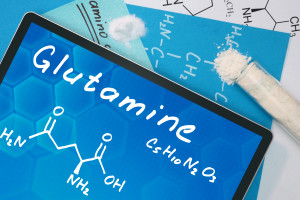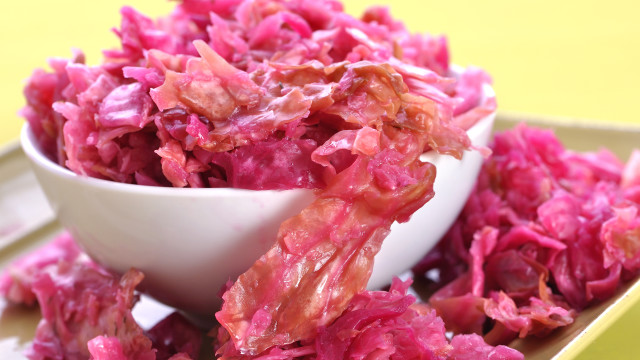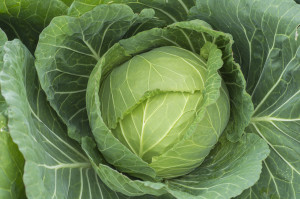Glutamine, what is it and why is it so important to us
Unlike “amino acids” or “antioxidants”, “Glutamine” is not a popular term and chances are you haven’t even heard of it unless you are a bodybuilder, an athlete or you are recovering from chemotherapy, some transplant or other medical surgery.
But apart from muscle growth and speeding the bodies recovery, glutamine is important for treating common health problems such as insomnia, anxiety, depression and digestive system conditions. Not to mention it helps the skin to stay firm, the hair to grow healthy and the immune system to strengthen. 
Therefore, it is useful to know that glutamine can help you live healthier and that this amino acid can also be found in food, not only in the form of supplements bodybuilders take in order to gain muscles and increase their athletic performance.
Here are some interesting facts you should know about what scientists often refer to as “an internal fountain of youth”.
What is glutamine?
Glutamine, or L-glutamine, is the most abundant free amino acid in the body and one of the 20 amino acids encoded by the standard genetic code.
In simpler words, glutamine is a building block for proteins that is found naturally in the human body. Muscles produce glutamine and blood distributes it to the organs that need it. Since it can be synthesized by the body, glutamine is considered a non-essential amino acid, the kind that your body can naturally produce under normal conditions, therefore you don’t need any additional glutamine sources (like certain foods or supplements) in order to maintain your health.
Problems occur when the body cannot produce enough glutamine due to various conditions, from dangerous diseases such as cancer, attention deficit-hyperactivity disorder (ADHD), autoimmune diseases, HIV, to health issues that are very common these days: physical and mental stress, malnutrition, depression, ulcers, irritable bowel syndrome, weakened immune system etc.
In these crises situations, it is necessary to supplement your intake of glutamine by eating foods that are rich in proteins and/or taking glutamine supplements.
Glutamine has a huge role in the recovery of body after major medical treatments.
For example, it helps protect the digestive and immune system from side effects of chemotherapy used to treat the cancer of the esophagus, and can speed up recovery after bowel surgery or bone marrow transplant. People who have suffered traumatic injuries or critically ill people prone to infections can also benefit from glutamine treatments, while people who suffer from HIV use this amino acid in order to prevent weight loss.
Glutamine treatments are also useful in treating affections such as Crohn’s disease, ADHD, digestive system conditions, stomach ulcers, depression, insomnia, anxiety, sickle-cell anemia and ulcerative colitis.
Glutamine benefits
Although further research is needed in order to properly establish the effects of glutamine supplements and treatments on human body, specialized studies have already revealed some important benefits:
Glutamine helps treat cancer.
As mentioned above, glutamine helps prevent toxic side effects of chemotherapy and radiotherapy. It can also enhance the efficiency of chemotherapy drugs, decrease post-operative complications and reduce the length of staying in hospital for patients undergoing colorectal cancer surgery.
However, scientists warn us that glutamine supplementation needs to be done under strict specialized surveillance, as glutamine can also stimulate tumor growth in the body.
Glutamine maintains the normal functioning of cardiovascular system,
as it is the main source of energy for blood vessel endothelial cells and regulates the synthesis of nitric oxide, which affects blood vessel tone and reduces the inflammation in their walls.
Glutamine is good for the nervous system.
Our memory, concentration and overall condition of mind depend on the level of glutamine in the body. Glutamine turns into L-glutamic acid, which is extremely important as it can be transformed into a source of energy for nerve cells when the blood sugar is low.
Glutamine protects the digestive system.
As it helps prevent inflammation and autoimmune processes, glutamine has been shown to be effective in treating ulcerative colitis, celiac disease, Crohn’s disease and irritable bowel syndrome. In addition, this amino acid may protect the body against H. pylori, the bacteria that causes chronic inflammation in the stomach and is a common cause of ulcers.
Glutamine strengthens the immune system.
Surgeries can lead to hospital-acquired infections that in some cases can be deadly. Studies have revealed that critically ill patients who received intravenous glutamine after their surgery had less infectious complications.
Glutamine supports the muscles.
Athletes can use glutamine in order to increase or maintain their muscle mass. When subjected to intense stress and physical activity, the body produces more cortisol, the so-called “stress hormone” that reduces the body’s supply of glutamine. That is way athletes and people who suffer from severe stress need glutamine supplementation.
Glutamine detoxifies the body
As it is the primary source of energy for the lymphatic cells, which are responsible with neutralizing the toxins the body accumulates.
Glutamine is good for healthy firm skin.
When the body has all the essential micro nutrients it needs, the ageing process is being slowed down and the cells can regenerate properly. When the supply of glutamine is not enough, the body takes its necessary proteins from the muscles in order to produce it. This eventually leads to saggy skin, as muscle proteins are lost and muscle strands become thinner.
While there are no side effects when supplementation is properly done, precaution is necessary when it comes to pregnant or breastfeeding women, people suffering from epilepsy or seizures, severe liver diseases and bipolar disorder.
Natural sources of glutamine
In cases such as surgeries, traumatic injuries, intense physical activity and stress, when the body is unable to synthesize enough glutamine, we often resort to supplements (powder or capsules that are available at certain suppliers) and consume more foods that are rich in glutamine: red cabbage, cabbage, wheat and whole grains, beet, peas, beans, spinach and parsley.
Red cabbage is ranked first among natural sources of glutamine, in particular pickled red cabbage in apple cider vinegar. This is one of the most accessible natural sources because the deep fermentation process creates various enzymes and beneficial bacteria that help the body to better assimilate amino acids.
As you can see, glutamine is important for the well-being of your body, both physically and mentally.
Glutamine really is “an internal fountain of youth”!


